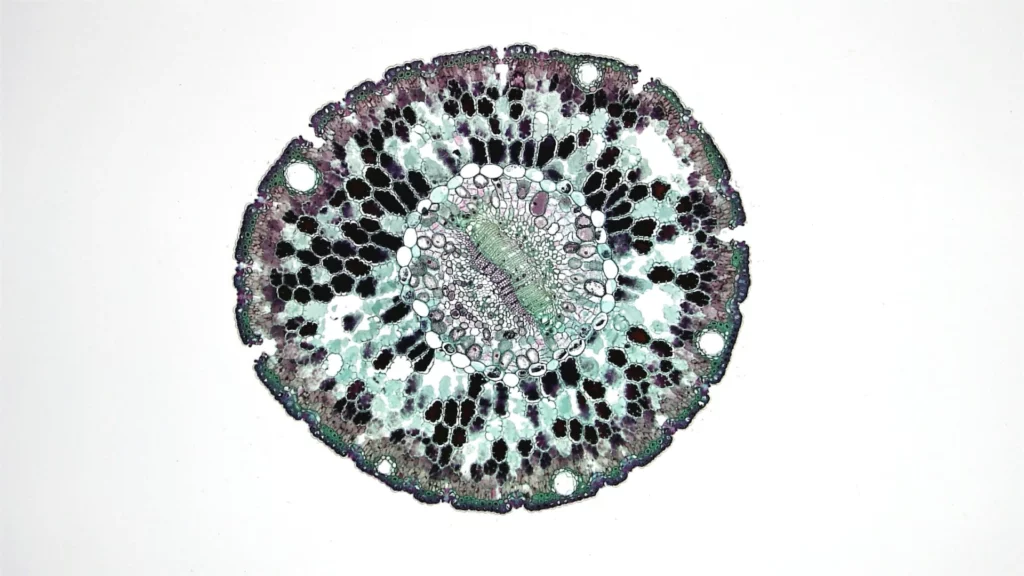Spirulina, a type of blue-green algae, has been used as a nutritional supplement for centuries, praised for its dense nutrient profile and numerous health benefits. Among its many advantages, spirulina is particularly celebrated for its regenerative properties. This article explores how spirulina supplements can nourish and restore the body, promote cell renewal, provide antioxidant protection, combat free radicals, strengthen vital functions, and contribute to anti-aging efforts.
Nutrient Composition and Benefits

Proteins and Amino Acids:
- High Protein Content: Spirulina is composed of about 60-70% protein by weight, one of the highest concentrations found in any natural food source. This makes it an excellent source of protein, especially for vegetarians and vegans.
- Complete Amino Acid Profile: Spirulina contains all essential amino acids that the body cannot synthesize on its own. These amino acids are crucial for various bodily functions, including tissue repair, enzyme production, and muscle growth.
Vitamins:
- Thiamine (Vitamin B1): Essential for energy production, brain function, and nervous system health.
- Riboflavin (Vitamin B2): Plays a key role in energy metabolism and the maintenance of healthy skin and eyes.
- Niacin (Vitamin B3): Important for digestive health, nerve function, and the conversion of food into energy.
- Pyridoxine (Vitamin B6): Involved in amino acid metabolism, red blood cell production, and neurotransmitter synthesis.
- Cobalamin (Vitamin B12): Vital for red blood cell formation, neurological function, and DNA synthesis. Spirulina is one of the few plant sources of bioavailable B12, beneficial for vegans and vegetarians.
- Vitamin E: An antioxidant that helps protect cells from oxidative damage and supports immune function and skin health.
Minerals:
- Iron: Crucial for the production of hemoglobin, which carries oxygen in the blood. Adequate iron levels help prevent anemia and related fatigue.
- Magnesium: Involved in over 300 biochemical reactions in the body. Including muscle and nerve function, blood glucose control, and bone health.
- Potassium: Important for maintaining fluid balance, nerve signals, and muscle contractions.
- Calcium: Essential for healthy bones and teeth, muscle function, and nerve transmission.
Essential Fatty Acids:
- Omega-3 and Omega-6 Fatty Acids: Support brain function, cardiovascular health, and anti-inflammatory processes. Gamma-linolenic acid (GLA), a type of omega-6 fatty acid found in spirulina, has unique anti-inflammatory properties.
Gamma-Linolenic Acid (GLA):
- Cell Membrane Integrity: GLA is a type of omega-6 fatty acid that is relatively rare in the diet but abundant in spirulina. It is vital for maintaining the integrity and fluidity of cell membranes. Which are essential for protecting cells and regulating their interactions with their environment.
- Anti-inflammatory Properties: GLA has anti-inflammatory effects. Which help reduce cellular damage caused by inflammation and support the healing and regeneration of tissues.
Phycocyanin:
- Hematopoiesis Stimulation: Phycocyanin is a pigment-protein complex unique to spirulina that gives it its distinctive blue-green color. It has been shown to stimulate hematopoiesis. The production of blood cells, particularly red blood cells and certain types of white blood cells. This process is crucial for maintaining healthy blood and supporting the body’s ability to regenerate cells.
- Primary Antioxidant: Phycocyanin is the main antioxidant in spirulina, giving it a distinctive blue-green color. It is a potent free radical scavenger that helps neutralize harmful molecules, preventing cellular damage.
- Inhibition of Lipid Peroxidation: Lipid peroxidation is a process where free radicals attack lipids in cell membranes. Leading to cell damage and inflammation. Phycocyanin inhibits this process, protecting cell membranes and maintaining their integrity.
- Anti-inflammatory Effects: Besides its antioxidant properties, phycocyanin also reduces inflammation, which is often linked to oxidative stress. This dual action enhances its protective effects on cells.
Nourish and Restore

Spirulina, a nutrient-dense blue-green algae, stands out as a superfood with remarkable abilities to nourish and restore the body. Its rich composition of essential nutrients makes it a potent supplement for enhancing overall health and well-being. Let’s explore in detail how spirulina nourishes and restores the body and the specific benefits it provides.
How Spirulina Nourishes and Restores
- Restoring Nutrient Levels:
- Comprehensive Nutrition: The wide range of nutrients in spirulina helps replenish depleted nutrient stores in the body. This is especially beneficial for individuals with dietary deficiencies. Those recovering from illness, or those with increased nutritional needs, such as pregnant or lactating women.
- Enhanced Absorption: Spirulina’s nutrients are highly bioavailable, meaning they are easily absorbed and utilized by the body. This efficient absorption ensures that the body receives maximum benefit from the supplement.
- Enhancing Overall Health:
- Energy Boost: The B vitamins and iron in spirulina play significant roles in energy production. By supporting the body’s metabolic processes, spirulina helps enhance energy levels and reduce fatigue.
- Immune Support: Spirulina’s rich antioxidant content, including vitamins E and B6, helps strengthen the immune system, protecting the body against infections and diseases.
- Muscle and Tissue Repair: The complete protein profile aids in the repair and growth of muscle tissues, making it ideal for athletes and active individuals.
- Bone Health: The calcium and magnesium content supports the maintenance of strong bones and teeth, reducing the risk of osteoporosis and other bone-related conditions.
- Supporting Recovery:
- Post-Illness Recovery: For individuals recovering from illness, spirulina provides essential nutrients that help rebuild strength and vitality. Its high protein content aids in tissue repair, while vitamins and minerals support overall recovery processes.
- Digestive Health: Spirulina promotes the growth of healthy gut bacteria, which enhances digestion and nutrient absorption, contributing to overall digestive health.
Cell Renewal

The process of cell renewal is crucial for maintaining the health and function of tissues and organs. Spirulina, with its rich nutritional profile, plays a significant role in supporting this vital biological process. Here’s a detailed look at how spirulina aids in cell renewal and the benefits it brings to the body.
Benefits of Spirulina in Cell Renewal
- Enhanced Tissue and Organ Function:
- Healthy Cell Production: By providing essential nutrients that support the creation of new cells, spirulina ensures that tissues and organs can maintain optimal function. This is particularly important for tissues with high turnover rates, such as the skin, digestive tract, and blood cells.
- Repair of Damaged Cells: The amino acids and proteins in spirulina are crucial for repairing and replacing damaged cells, promoting faster recovery from injuries and reducing the impact of wear and tear on the body.
- Improved Blood Health:
- Hematopoiesis Support: Spirulina’s ability to stimulate the production of blood cells helps maintain healthy levels of red and white blood cells. This is vital for oxygen transport, immune defense, and overall vitality.
- Anemia Prevention: With its rich iron and vitamin B12 content, spirulina helps prevent anemia, ensuring that the body has a sufficient supply of healthy red blood cells to support cell renewal.
- Anti-Inflammatory and Antioxidant Protection:
- Reduced Cellular Damage: Spirulina’s antioxidants protect cells from oxidative damage, which can impair their function and lead to premature aging. The anti-inflammatory properties of GLA and phycocyanin further reduce cellular stress and damage, promoting healthier and more resilient cells.
- Support for Immune Cells: By aiding the production of certain types of white blood cells, spirulina helps bolster the immune system, enhancing the body’s ability to fight infections and support the regeneration of immune cells.
- Enhanced Recovery and Regenerative Health:
- Post-Illness and Injury Recovery: Spirulina’s comprehensive nutrient profile supports faster recovery from illnesses and injuries by promoting the repair and regeneration of cells. This makes it particularly valuable for individuals undergoing rehabilitation or those recovering from surgery or chronic conditions.
- Chronic Condition Management: For individuals with chronic conditions that impact cellular health and renewal, such as diabetes or cardiovascular diseases, spirulina provides essential nutrients that support ongoing cell repair and maintenance.
Antioxidant Protection

Antioxidants play a crucial role in protecting the body from oxidative stress, a condition caused by an imbalance between free radicals and antioxidants. Spirulina is renowned for its high antioxidant content, which helps safeguard cells from damage and supports overall health. Here’s a closer look at how spirulina’s antioxidants work and the benefits they provide.
Benefits of Antioxidant Protection from Spirulina
- Reduced Oxidative Stress:
- Protection Against Cellular Damage: The antioxidants in spirulina help neutralize free radicals, reducing oxidative stress and preventing damage to cellular structures such as DNA, proteins, and lipids.
- Prevention of Chronic Diseases: Oxidative stress is a major contributing factor to the development of chronic diseases, including heart disease, cancer, and neurodegenerative disorders. By mitigating oxidative stress, spirulina helps lower the risk of these conditions.
- Anti-Inflammatory Effects:
- Reduction of Inflammation: Antioxidants like phycocyanin and vitamin E possess anti-inflammatory properties that help reduce inflammation in the body. Chronic inflammation is associated with numerous health issues, and controlling it is crucial for maintaining long-term health.
- Improved Immune Function: By reducing oxidative stress and inflammation, spirulina supports the immune system, enhancing the body’s ability to fight off infections and diseases.
- Skin Health:
- Protection Against UV Damage: Antioxidants such as beta-carotene and vitamin E help protect the skin from damage caused by ultraviolet (UV) radiation. They reduce oxidative damage to skin cells, which can lead to premature aging and skin cancer.
- Enhanced Skin Repair: The antioxidants in spirulina support the repair and regeneration of skin cells, promoting a healthy, youthful appearance.
- Improved Cardiovascular Health:
- Reduction of Oxidative Damage to Blood Vessels: Oxidative stress can damage blood vessels, leading to atherosclerosis and other cardiovascular diseases. Spirulina’s antioxidants help protect the cardiovascular system by reducing oxidative damage and improving vascular function.
- Lowering LDL Oxidation: Spirulina can help prevent the oxidation of low-density lipoprotein (LDL) cholesterol, a key factor in the development of heart disease.
- Neuroprotective Effects:
- Protection of Brain Cells: Oxidative stress is implicated in neurodegenerative diseases such as Alzheimer’s and Parkinson’s disease. Spirulina’s antioxidants help protect brain cells from oxidative damage, potentially reducing the risk of these conditions.
- Improved Cognitive Function: By mitigating oxidative stress and inflammation, spirulina may support overall brain health and cognitive function.
Fight Against Free Radicals

Free radicals are unstable molecules that can cause significant damage to cells, leading to inflammation, aging, and a host of chronic diseases. Spirulina’s rich antioxidant content makes it an effective agent in combating these harmful molecules. Let’s explore how spirulina fights against free radicals and the benefits this action brings to cellular health and longevity.
Benefits of Spirulina’s Fight Against Free Radicals
- Protection of Cellular Components:
- DNA Integrity: Free radicals can cause mutations and damage to DNA, leading to malfunctioning cells and increased risk of cancer. Spirulina’s antioxidants help preserve DNA integrity, reducing the likelihood of such damage.
- Protein Preservation: Oxidative stress can denature proteins, impairing their function. Spirulina’s protective effects ensure that proteins retain their structure and activity.
- Lipid Protection: By preventing lipid peroxidation, spirulina maintains the health of cell membranes, which are essential for cellular communication and nutrient transport.
- Reduction of Inflammation:
- Anti-inflammatory Action: Spirulina’s antioxidants reduce inflammation by neutralizing free radicals that would otherwise trigger inflammatory pathways. This helps mitigate chronic inflammatory conditions and supports overall health.
- Immune Support: Lower oxidative stress and inflammation enhance the immune system’s ability to function effectively, protecting the body from infections and diseases.
- Slowing the Aging Process:
- Anti-Aging Effects: Oxidative stress is a major contributor to aging by damaging cellular components. Spirulina’s antioxidants help slow this process, promoting healthier, more youthful cells.
- Skin Health: By protecting against UV-induced free radical damage, spirulina supports skin health, reducing the appearance of wrinkles and age spots.
- Prevention of Chronic Diseases:
- Cardiovascular Health: Free radicals can damage blood vessels, leading to atherosclerosis and heart disease. Spirulina’s antioxidants help protect cardiovascular health by reducing oxidative damage.
- Neuroprotection: Oxidative stress is implicated in neurodegenerative diseases like Alzheimer’s and Parkinson’s. Spirulina’s ability to combat free radicals supports brain health and cognitive function.
- Cancer Prevention: By protecting DNA from oxidative damage and mutations, spirulina may help reduce the risk of certain cancers.
Strengthening Vital Functions

Spirulina, often hailed as a superfood, is packed with a diverse array of nutrients that support and enhance various vital functions of the body. This rich nutrient profile helps improve overall health, vitality, and well-being. Here’s an in-depth look at how spirulina strengthens vital physiological processes.
Benefits of Spirulina in Strengthening Vital Functions
1. Enhanced Oxygen Transport and Energy Production:
- Boosted Hemoglobin Levels: The high iron content in spirulina supports the production of hemoglobin, enhancing the oxygen-carrying capacity of the blood. This results in better oxygen delivery to tissues and organs, improving energy levels and reducing fatigue.
- Improved Athletic Performance: For athletes and active individuals, spirulina can enhance endurance and performance by ensuring that muscles receive adequate oxygen during physical activity.
2. Support for Metabolic Processes:
- Energy Metabolism: B vitamins are essential for the body’s energy production processes. They help convert carbohydrates, fats, and proteins into usable energy, supporting daily activities and overall vitality.
- Balanced Metabolism: By aiding in the metabolism of macronutrients, spirulina helps maintain a balanced metabolism, which is crucial for weight management and overall health.
3. Nervous System Health:
- Neurotransmitter Synthesis: B vitamins are involved in the synthesis of neurotransmitters, the chemical messengers that transmit signals in the brain. This supports cognitive function, mood regulation, and overall mental health.
- Protection Against Neurological Disorders: Adequate intake of B vitamins can help protect against neurological disorders and cognitive decline, enhancing brain health and function.
4. Cardiovascular Benefits:
- Cholesterol Reduction: The omega-3 and omega-6 fatty acids in spirulina help reduce LDL (bad) cholesterol levels while increasing HDL (good) cholesterol levels. This balance is essential for preventing atherosclerosis and other cardiovascular diseases.
- Improved Blood Vessel Function: These fatty acids also contribute to the health and function of blood vessels, reducing the risk of hypertension and improving overall cardiovascular health.
5. Immune System Support:
- Enhanced Immune Function: Spirulina’s rich nutrient profile, including vitamins, minerals, and antioxidants, supports the immune system, enhancing the body’s ability to fight infections and diseases.
- Anti-inflammatory and Antioxidant Effects: The anti-inflammatory and antioxidant properties of spirulina further support immune health by reducing inflammation and protecting immune cells from oxidative stress.
Anti-Aging

Aging is a complex process influenced by genetic, environmental, and lifestyle factors. Oxidative stress and inflammation are significant contributors to aging and age-related diseases. Spirulina’s potent antioxidant and anti-inflammatory properties help mitigate these factors, thereby slowing the aging process. The antioxidants in spirulina protect against cellular damage, reduce inflammation, and enhance skin health by promoting collagen production and preventing the breakdown of elastin. Additionally, the nutrients in spirulina, such as vitamins E and C, play a role in maintaining skin elasticity and hydration, further contributing to its anti-aging effects.
Benefits of Spirulina’s Anti-Aging Effects
1. Protection Against Cellular Damage:
- DNA Integrity: By neutralizing free radicals, spirulina helps protect DNA from mutations and damage, reducing the risk of cancer and other age-related diseases.
- Preservation of Cellular Function: Antioxidants in spirulina protect proteins and lipids from oxidative damage, ensuring that cells function properly and remain healthy.
2. Reduced Inflammation:
- Lower Risk of Chronic Diseases: By reducing chronic inflammation, spirulina lowers the risk of developing age-related diseases such as heart disease, diabetes, and neurodegenerative disorders.
- Improved Joint Health: Anti-inflammatory properties help reduce joint pain and stiffness, common issues associated with aging.
3. Enhanced Skin Health:
- Youthful Appearance: Spirulina’s promotion of collagen production and prevention of elastin breakdown help maintain skin elasticity and reduce the appearance of wrinkles and sagging skin.
- Hydration and Radiance: Vitamins and antioxidants in spirulina help keep the skin hydrated and radiant, contributing to a healthy, youthful complexion.
4. Overall Longevity:
- Enhanced Vitality: By protecting against oxidative stress and inflammation, spirulina helps maintain overall health and vitality, contributing to a longer, healthier life.
- Improved Immune Function: Spirulina’s nutrients support the immune system, enhancing the body’s ability to fight off infections and diseases, which is crucial for healthy aging.
Conclusion
Spirulina food supplements offer a multitude of regenerative properties that nourish and restore the body, promote cell renewal, provide robust antioxidant protection, combat free radicals, strengthen vital functions, and contribute to anti-aging efforts. As a superfood with a dense nutrient profile, spirulina stands out as a powerful ally in maintaining health and promoting longevity. Whether used as a dietary supplement or integrated into a balanced diet, spirulina provides significant benefits that support overall well-being and vitality.

